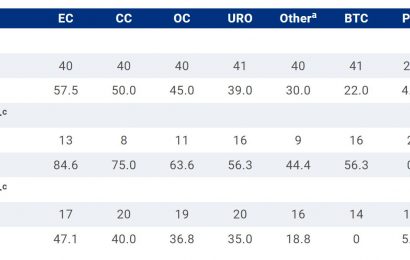Penicillin-allergy evaluation in pregnant women, including both skin testing and oral challenges, is safe to perform in the outpatient allergy office, researchers say.
A review of women who had negative penicillin skin testing while they were pregnant showed that all of them tolerated increasing challenges to penicillin and many used intrapartum penicillin safely.
The findings were presented during an oral abstract session at American Academy of Allergy, Asthma & Immunology 2021 Annual Meeting.
ACOG Recommendations Ignored
|
Vima Patel “In 2019, the American College of Obstetricians and Gynecologists (ACOG), formally recommended that women who have a penicillin-allergy label get an allergy evaluation, either prior to pregnancy or during pregnancy, given that penicillin is first line for preventing group B strep infection in women who then pass it to the neonate, where such an infection can be fatal,” Vima Patel, MD, an allergy/immunology fellow at the University of Pennsylvania Perelman School of Medicine, Philadelphia, told Medscape Medical News. Despite that recommendation, allergists remain reluctant to do as ACOG recommends. |
“We saw on blog posts, in different social media groups, postings that showed that allergists were still hesitant to perform penicillin allergy testing in pregnant women, and also that obstetricians weren’t always referring them to be evaluated,” Patel said.
She and her team conducted a retrospective review of their cohort of 122 pregnant women. The women had all been referred to the University of Pennsylvania allergy clinic by their obstetrician.
The average gestational age was 27 weeks at the time of testing. Most of the women (n = 87) reported penicillin or amoxicillin allergy. Other culprit drugs included amoxicillin–clavulanate, reported by six women, ampicillin, reported by two, and cephalosporin, reported by five.
One woman had never had a reaction to penicillin but reported a family history of penicillin allergy as a reason for having the label. The culprit drugs were unknown in 21 women.
The index reaction occurred more than 5 years previous in 90% of the women, and 91% of the index reactions were cutaneous or classified as “unknown”.
Of the 122 women in the cohort, 119 underwent skin testing. Of these, 115 were negative, one was positive, and three were equivocal. One woman did not undergo skin testing because she had a history of blister reaction, and two went directly to a food challenge without a skin test.
All but one of the 119 women who underwent a graded challenge to penicillin V or amoxicillin tolerated the challenge. The exception developed isolated itching.
“If the woman passed the challenge, the penicillin-allergy label was removed,” noted Patel.
Of those women, 52 used intrapartum antibiotics, 38 of whom (72%) used penicillin during delivery safely and with no ill effects.
A Lot of “Penicillin Allergy” Isn’t
|
Jonathan Bernstein “Of course, people are always afraid to touch pregnant women because of the ramifications ‘what if they have an anaphylaxis, what if they have a reaction, what if something goes wrong and you’re blamed for something bad that happens with the baby, and all the medical-legal things that go along with it,” Jonathan A. Bernstein, MD, professor of medicine at the University of Cincinnati, commented to Medscape Medical News. |
But, there are medical situations that mandate the use of an antibiotic, and the penicillins are the safest and most effective. They are also the most cost-effective, said Bernstein, who was not part of the study.
“The important thing here is that penicillin testing is extremely safe, whether patients are pregnant or not. In fact, 90% to 95% of cases are typically penicillin-tested-negative, because most of the reactions people deem as penicillin allergy are not due to a specific IgE antibody response. Only 3% to 5% of all drug reactions are immunologically mediated, so most of these reactions are probably occurring through other mechanisms,” he said.
Patel and Bernstein have disclosed no relevant financial relationships..
American Academy of Allergy, Asthma & Immunology (AAAAI) 2021 Annual Meeting: Abstract 466. Presented February 27, 2021.
Follow Medscape on Facebook, Twitter, Instagram, and YouTube
Source: Read Full Article




